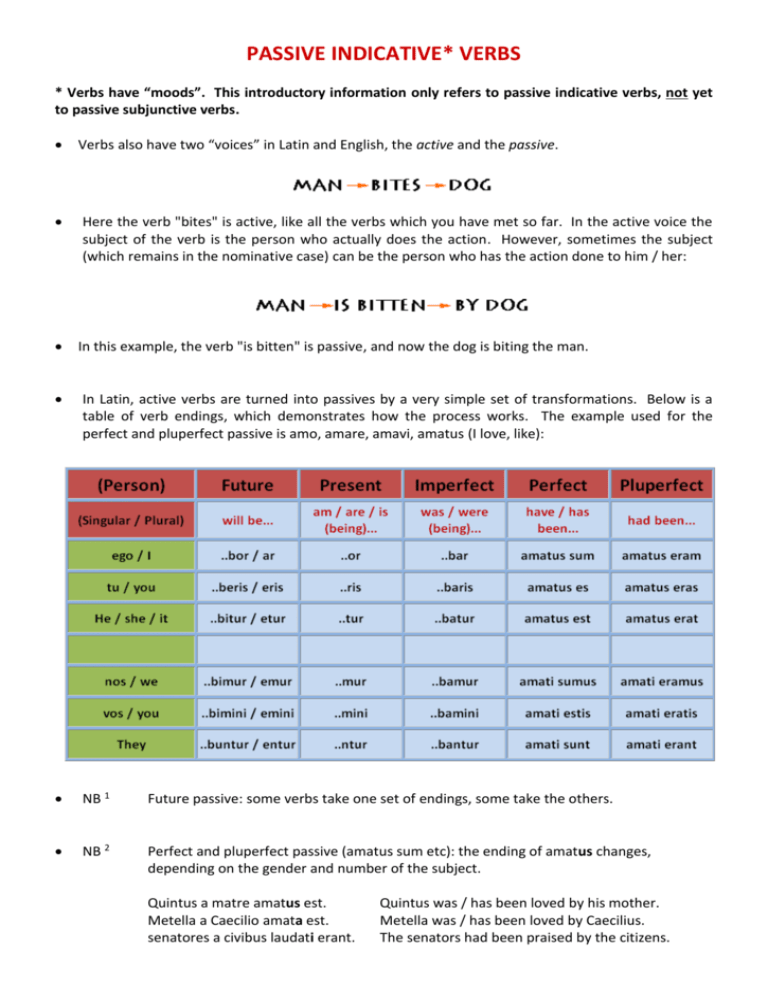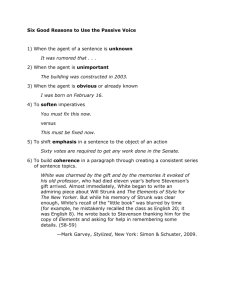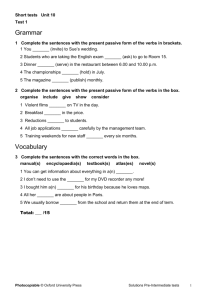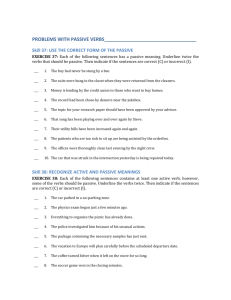Passive Verbs - Worth School VLE
advertisement

PASSIVE INDICATIVE* VERBS * Verbs have “moods”. This introductory information only refers to passive indicative verbs, not yet to passive subjunctive verbs. Verbs also have two “voices” in Latin and English, the active and the passive. Here the verb "bites" is active, like all the verbs which you have met so far. In the active voice the subject of the verb is the person who actually does the action. However, sometimes the subject (which remains in the nominative case) can be the person who has the action done to him / her: In this example, the verb "is bitten" is passive, and now the dog is biting the man. In Latin, active verbs are turned into passives by a very simple set of transformations. Below is a table of verb endings, which demonstrates how the process works. The example used for the perfect and pluperfect passive is amo, amare, amavi, amatus (I love, like): NB 1 Future passive: some verbs take one set of endings, some take the others. NB 2 Perfect and pluperfect passive (amatus sum etc): the ending of amatus changes, depending on the gender and number of the subject. Quintus a matre amatus est. Metella a Caecilio amata est. senatores a civibus laudati erant. Quintus was / has been loved by his mother. Metella was / has been loved by Caecilius. The senators had been praised by the citizens. Examples 1) cena nostra a coquo nunc paratur. 2) multa scelera in hac urbe cotidie committuntur. 3) arcus ab imperatore dedicatus est. 4) auditus est; invitati sunt; decepti sumus; laudatus es. 5) fabri diligenter laborare iussi erant. 6) Simon a matre servatus erat. 7) puniti erant; missus erat; monitus eram. 8) in oppido dies festus Iunonis celebrabatur. 9) “superstites Iudaeorum ab Masada tracti sunt,” inquit legatus. 10) haec fabula de Caecilio Quinto tradita erat. 11) gladiatores leonibus interficiuntur. 12) vox puellae auditur. 13) Commodus a civibus Romanis accusabatur. Maximus autem ab omnibus laudabatur. 14) paucae naves ad insulam multis cum legionibus missae sunt. 15) hospites per portas villae ducebantur.





